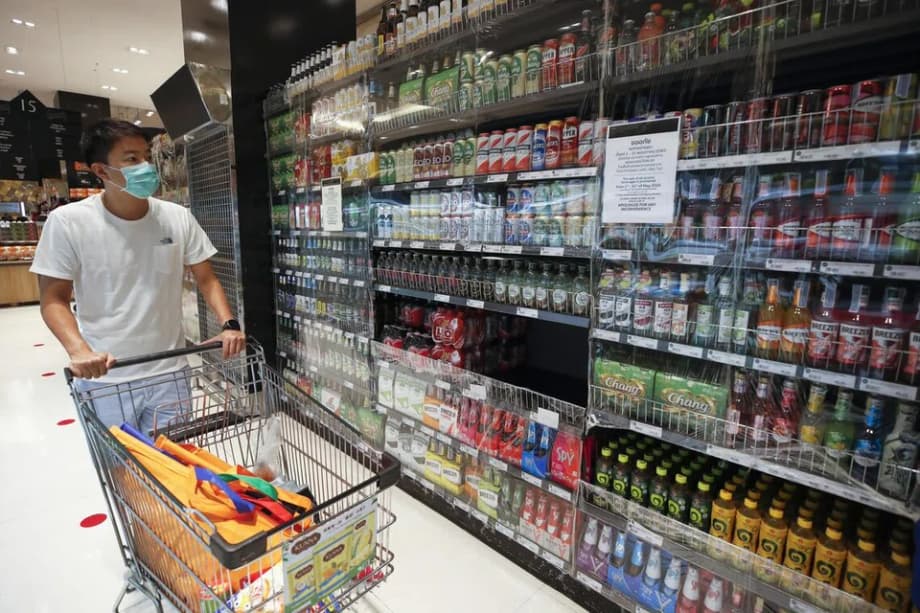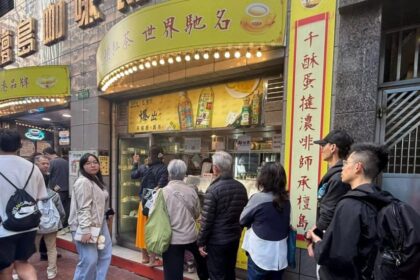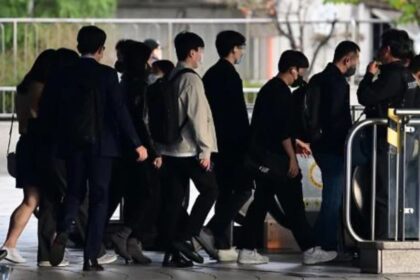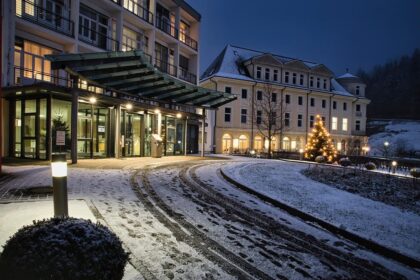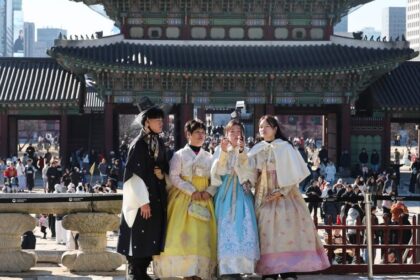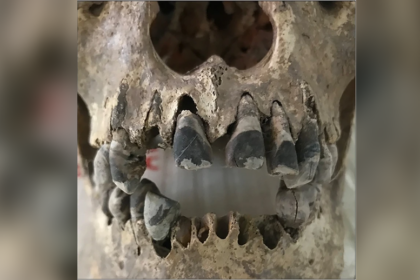Why Thailand brought back afternoon alcohol sales
Thailand reversed its midday alcohol sales restriction after a wave of criticism from tourism and hospitality groups, opening the 2 pm to 5 pm window for drinks as a national pilot from early December. The move restores continuity for bars, restaurants and retailers that rely on afternoon foot traffic in the peak travel season.
- Why Thailand brought back afternoon alcohol sales
- What changed in the rules and how enforcement worked
- Tourism pressures and the holiday season economics
- Official rationale and the politics behind the reversal
- Health and safety concerns remain
- What travelers should expect from December
- Business reaction across the sector
- Regional and historical context
- What to Know
The pilot will run for six months. Officials said it could be extended beyond mid 2026 if safety and economic metrics are met. Public Health Minister Pattana Promphat announced the decision after a three hour meeting of the liquor control committee.
The backtrack arrived only days after authorities began enforcing stricter rules that broadened a decades old afternoon prohibition. That rule, dating to 1972, had long applied mostly to retail outlets such as convenience stores and supermarkets. The latest enforcement push swept far wider, catching travelers and businesses off guard.
What changed in the rules and how enforcement worked
Amendments to the Alcoholic Beverage Control Act took effect on November 8. For the first time, individuals faced penalties of up to 10,000 baht for drinking or being served alcoholic beverages during prohibited hours or in prohibited places. The burden shifted from sellers alone to consumers as well, a change that created uncertainty for diners and tourists who were simply ordering wine with lunch.
The package also tightened marketing. Alcohol advertisements must stick to factual information, and the use of celebrities, influencers or public figures for commercial promotion is restricted. Businesses said these steps add compliance risk just when they are trying to rebuild demand.
Even before the expansion of enforcement, Thailand’s daily sales hours were fragmented. Retailers could sell from 11 am to 2 pm and again from 5 pm to midnight. Many restaurants and bars followed similar patterns even when they held licenses or exemptions. In practice, the wider enforcement chilled sales in the afternoon period and led to mismatched expectations between venues and their guests.
From retail only to wider scope
For years, the 2 pm to 5 pm prohibition was treated as a retail rule. The attempt to impose it more broadly, with fines for drinkers and stricter checks by local officers, changed behavior across the hospitality sector in a matter of days.
Tourism pressures and the holiday season economics
Tourism remains a pillar of the Thai economy, accounting for roughly one fifth of gross domestic product. The year end period is the busiest stretch for international arrivals. After a slower pace of foreign visitors in 2025, operators warned that any friction on spending would hit revenue during a vital quarter.
Restaurants, bars and beach clubs rely on beverage sales to sustain margins. Industry groups argued that making customers liable for afternoon drinking would cut average checks and lead to canceled events. The Thai Restaurant Association said the tightened rules would have harmed eateries because customers, rather than venues, were limited by the sale hours. The reopening of the 2 pm to 5 pm window is expected to boost receipts for food and beverage, especially in resort areas.
Hotels also cheered the change. Afternoon weddings, poolside service, and conference receptions are central to their business models. Retailers, especially convenience chains with large beverage aisles, will regain a popular sales slot that had been shut for decades.
Calls to modernize alcohol policy are not new. During the border reopening in 2021, business owners warned that bans on alcohol service in restaurants and the closure of nightlife would deter visitors. The latest adjustment continues that pivot toward a tourism led recovery while preserving the ability to tighten rules if public health indicators worsen.
Official rationale and the politics behind the reversal
Government leaders framed the decision as both an economic fix and a clean up of an outdated rule. Deputy Prime Minister Sophon Zarum said the 2 pm to 5 pm restriction was introduced generations ago to keep civil servants from drinking in the afternoon. He said the context has changed and the state should focus on realistic, enforceable measures. Officials also outlined a process that includes a short public consultation and the publication of the new hours as a Prime Minister’s Office announcement.
Introducing his view of the old rule, Sophon said the intent no longer fits modern workplaces.
That rule was originally introduced decades ago to stop civil servants from drinking between 2pm and 5pm.
He added that the measure belonged to another era.
It is an outdated measure that should be abolished.
Sophon also argued that public campaigns should aim for responsible consumption rather than blanket prohibitions.
You cannot simply tell people not to drink. That is impractical.
Public Health Minister Pattana Promphat said the pilot will be closely monitored. If spending accelerates without a spike in alcohol related incidents, the expanded sales window could be extended beyond mid 2026.
Health and safety concerns remain
Medical groups and road safety advocates still worry about late night harm. The government has been studying whether to extend closing time for alcohol sales beyond midnight in popular tourist zones. Industry groups want a 4 am cut off, arguing that it would keep visitors in licensed venues. Health officials push back and present data showing that the highest number of drunk driving fatalities occur between 2 am and 3 am.
Sophon said a data based compromise is under review, such as a 1 am closing time, to reduce risks in early morning traffic from 5 am to 7 am when commuters are on the road.
What remains restricted
The midday change does not remove all controls. Election days and some national Buddhist holidays still come with alcohol restrictions. Age limits remain unchanged, ID checks continue, and drunk driving enforcement is a priority in major cities and resort provinces.
What travelers should expect from December
From early December, alcohol sales between 2 pm and 5 pm will be allowed nationwide for a six month pilot. Combined with existing windows, that means most retailers and eateries can sell continuously from 11 am to midnight. Local closing times still apply, and provincial authorities can impose tighter rules for specific events or safety operations.
Airports with international flights, licensed entertainment venues and many hotels already operated with exemptions under previous rules. The new approach removes doubts for a typical afternoon drink and reduces the chance that a customer could be fined for a harmless order at 3 pm.
Travelers should still expect restaurants and bars to check identification. The legal drinking age is 20. Promotions will look different, since marketing faces strict limits. Duty free shops and airport lounges follow their own licensing, but passengers should observe airline and airport policies.
Business reaction across the sector
Hospitality operators said the revised hours will support staffing, scheduling and investment plans through the high season. Several parts of the economy stand to benefit as the afternoon window reopens.
- Bars, restaurants and beach clubs can serve continuously through the day.
- Convenience stores and supermarkets regain midday sales, which drive impulse purchases.
- Hotels can host afternoon wedding toasts, pool service and conference receptions without uncertainty.
- Breweries, distributors and importers can plan deliveries more efficiently.
- Tourist districts like Bangkok, Phuket, Pattaya and Chiang Mai expect higher foot traffic and longer dwell times.
Regional and historical context
Thailand’s approach to alcohol control blends sales hours, licensing and marketing limits. The 1972 afternoon rule stood out in Southeast Asia, where few countries restrict daytime sales nationwide. For decades it sat mostly on the books for retailers, and many visitors were unaware of it.
The pandemic era exposed how sensitive tourism is to service restrictions. When the country reopened to vaccinated travelers in late 2021, businesses urged a faster return to normal operations so that visitors would not find nightlife shuttered and restaurants dry. The current pilot is another step in aligning policy with the needs of a service driven economy while keeping public safety at the center.
What to Know
- Thailand will allow alcohol sales from 2 pm to 5 pm starting early December for six months as a pilot.
- The pilot can be extended beyond mid 2026 if it meets safety and growth targets.
- The move reverses a brief expansion of enforcement that revived a 1972 afternoon ban and triggered a backlash from the tourism industry.
- Recent rule changes introduced fines up to 10,000 baht for drinking during prohibited times or in prohibited places, and tightened advertising limits.
- Exemptions for entertainment venues, hotels, certified tourist areas and airports remain in place.
- Officials say the change aims to support peak season spending while maintaining public safety.
- Debate continues over extending late night closing hours in tourist zones, with a possible compromise at 1 am under review.
- Election days and some Buddhist holidays still carry alcohol restrictions.
- The legal drinking age is 20 and drunk driving enforcement remains a priority.


